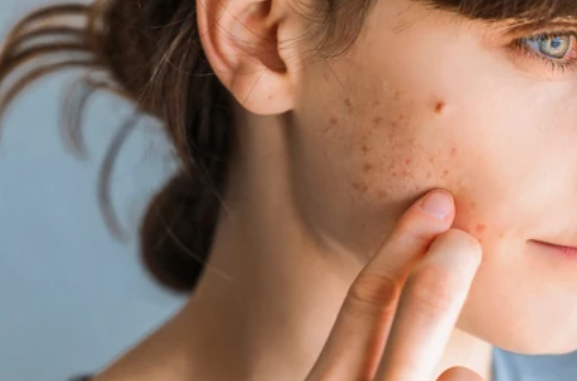Adult Acne: A Rough Ride Towards Maturing, Causes and Treatment
Adult Acne: A Rough Ride Towards Maturing - Causes and Treatment
Acne is often associated with the awkward, hormone-riddled years of adolescence. However, for many adults, the battle with acne continues into their 20s, 30s, 40s, and beyond. Adult acne, though less discussed, is a prevalent and distressing skin condition that can affect both physical appearance and self-esteem. In this comprehensive guide, we will delve into the world of adult acne, exploring its causes, triggers, and a wide range of treatment options, offering hope and solutions for those navigating the complexities of acne beyond their teenage years.
Section 1: Understanding Adult Acne
- Defining Adult Acne - Define adult acne and distinguish it from adolescent acne, emphasizing the unique challenges it presents.
- Prevalence and Demographics - Explore the prevalence of adult acne among different age groups and genders.
Section 2: Causes and Triggers
- Hormonal Fluctuations - Discuss the role of hormones, particularly androgens, in adult acne, and how hormonal changes throughout life can trigger breakouts.
- Stress and Acne - Examine the connection between chronic stress, elevated cortisol levels, and adult acne.
- Diet and Nutrition - Explore the impact of diet on acne, including the influence of high-glycemic foods, dairy, and dietary habits on skin health.
- Skincare Products and Cosmetics - Discuss the potential for skincare products, makeup, and cosmetics to exacerbate or alleviate adult acne.
Section 3: Types of Adult Acne
- Inflammatory vs. Non-Inflammatory Acne - Differentiate between inflammatory and non-inflammatory types of adult acne, including blackheads, whiteheads, papules, pustules, nodules, and cysts.
- Acne Location - Explore the common areas of the face and body where adult acne tends to occur.
Section 4: Treatment Options for Adult Acne
- Topical Treatments
- Over-the-Counter (OTC) Products - Discuss OTC acne products containing ingredients like benzoyl peroxide, salicylic acid, and alpha hydroxy acids.
- Prescription Topicals - Explore prescription-strength topical treatments, such as retinoids and topical antibiotics.
- Oral Medications
- Antibiotics - Discuss the use of oral antibiotics to combat inflammation and control acne-causing bacteria.
- Oral Contraceptives - Explore how certain birth control pills can help regulate hormones and reduce acne in some women.
- Anti-Androgen Medications - Discuss the use of anti-androgen medications to target hormonal imbalances in adult acne.
- Isotretinoin (Accutane) - Examine the use of isotretinoin as a last-resort treatment for severe, persistent adult acne.
- Procedures and Therapies
- Chemical Peels - Explore how chemical peels can improve skin texture and reduce acne breakouts.
- Laser and Light Therapies - Discuss the use of lasers and light devices for targeting acne and acne scars.
- Microneedling - Explore the benefits of microneedling for improving acne scars and skin texture.
- Extraction and Drainage - Understand the role of professional extraction and drainage in managing acne.
- Home Remedies and Natural Approaches
- Tea Tree Oil - Learn about the antimicrobial properties of tea tree oil and its potential use in acne management.
- Aloe Vera - Explore the soothing and anti-inflammatory properties of aloe vera for acne-prone skin.
- Dietary Supplements - Discuss supplements like zinc, omega-3 fatty acids, and probiotics as potential additions to an acne-fighting regimen.
Section 5: Lifestyle Modifications
- Stress Reduction Techniques
- Mindfulness and Meditation - Discuss the benefits of mindfulness practices and meditation in managing stress-related acne.
- Exercise - Explore how regular physical activity can reduce stress and improve overall skin health.
- Dietary Changes
- Low-Glycemic Diet - Understand how a low-glycemic diet can help stabilize blood sugar levels and reduce acne.
- Hydration - Explore the importance of proper hydration for skin health and acne management.
- Elimination Diets - Discuss the potential benefits of eliminating certain trigger foods from your diet to pinpoint acne triggers.
- Skincare Routine
- Gentle Cleansing - Learn about the importance of gentle cleansing and proper skincare routines for acne-prone skin.
- Sun Protection - Understand the role of sunscreen in preventing sun damage and post-acne hyperpigmentation.
Section 6: Coping with the Emotional Impact
- Body Image and Self-Esteem - Discuss the emotional toll of adult acne and its impact on body image and self-esteem.
- Support Systems and Therapy - Explore the benefits of seeking emotional support, therapy, or counseling for individuals struggling with acne-related self-esteem issues.
Section 7: Conclusion
While adult acne can be a challenging and persistent condition, it is not insurmountable. With a better understanding of its causes, triggers, and a wide array of treatment options, those affected by adult acne can embark on a journey towards clearer, healthier skin. Whether through topical treatments, oral medications, procedures, or lifestyle modifications, there is hope for effectively managing and even overcoming adult acne.
It's essential to consult with a dermatologist or healthcare provider to develop a personalized treatment plan tailored to your specific needs and skin type. Remember that achieving clearer skin may take time, patience, and consistency, but the rewards are worth it—a boost in self-esteem, improved quality of life, and a greater sense of confidence as you navigate the journey towards mature, radiant skin.


















No comments